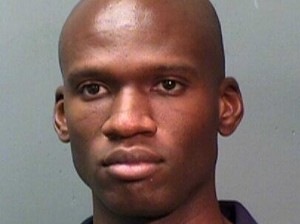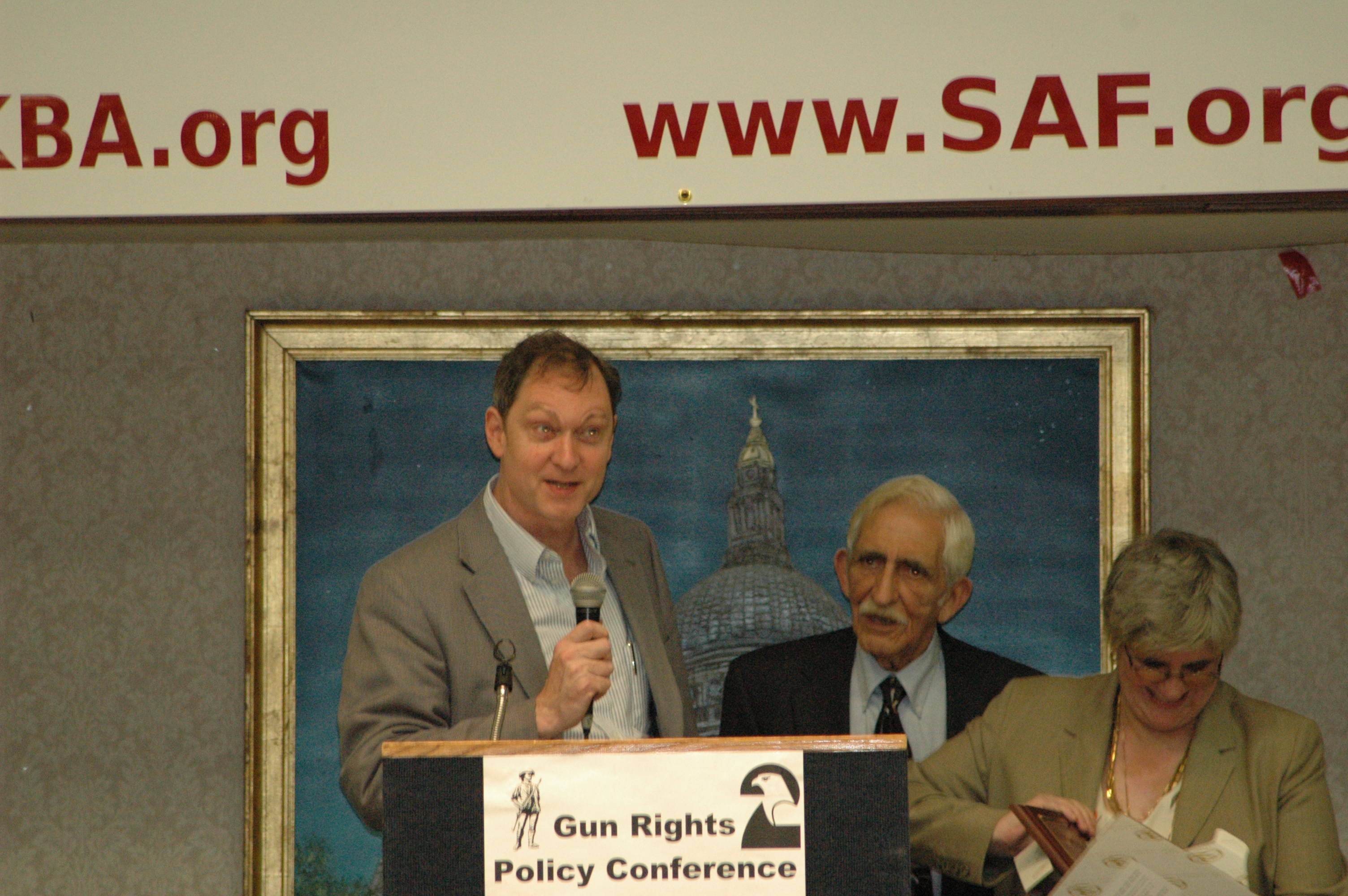Christy
Christy is a world-famous boxer. Despite her prowess in the ring, she was physically and psychologically abused at home. She endured for 20 years before finally deciding to leave her tormentor. Her husband, upon hearing the decision, stabbed her multiple times and then shot her at point-blank range. Even though Christy was left to die on the bedroom floor, she miraculously survived.
Some gun advocates will insist that this could have been prevented if only she had owned a gun to protect herself. There is, however, one flaw with this interpretation: she was shot with her own gun.
Zina
Zina was desperate. After years of enduring an abusive relationship, she finally found the courage to end it. Fearing for her life, she obtained a restraining order against her now estranged husband. Such an order should have guaranteed that her husband would be unable to pass a background check and obtain a firearm. In any other advanced country in the world, that would have been true. She lived in America though. Her husband was easily able to find a private seller online and buy a handgun, no background check required. The next day, he brutally murdered Zina and two of her coworkers.
In many states, a temporary restraining order is not enough to prevent an abuser from lawfully purchasing a firearm. In the 7-14 day period between the initial order and a court hearing, the time when an abused woman is at the greatest risk, her tormentor is easily able to obtain a firearm. And, as usual, the NRA has blocked all attempts to rectify this sad reality, stating that these life-saving measures grant “extraordinarily broad authority to strip firearms rights.” Apparently in the NRA’s view, an abuser’s freedom to own the weapon of his choice is more important than Christy or Zina’s freedom from brutality, violence made much more lethal by a firearm.
Positive vs. Negative Liberty
Negative liberty is the type of freedom we have in the absence of restrictions. Less interference = more freedom. A person living in anarchy or a state of nature has the maximum amount of negative liberty due to the complete absence of restrictions. By this definition of freedom, liberty can only decrease with the addition of society’s restriction. This liberty is chiefly characterized by the “freedom to” do certain actions. Some examples are:
- Freedom to pursue happiness.
- Freedom to express political opinions.
- Freedom to own a gun.
When we typically think of freedom, these are the examples that readily spring to mind. However, there is much more to liberty than just “freedom to.”
Positive liberty is just as important as negative liberty, despite being less intuitive. In contrast to negative liberty, positive liberty recognizes that freedom can actually expand in tandem with well-placed restrictions. Positive liberty is the freedom to realize our full potential and to maximize our well-being. A major part of positive liberty, then, is “freedom from” certain actions that are detrimental to achieving our full potential. Unlike its negative counterpart, positive liberty is often attributed to groups of people or society. For example:
- While you have the freedom to smoke a cigarette, we should and now do have the freedom from breathing in the noxious fumes.
- While you have the freedom to drive a car, we should have the freedom from having our safety endangered by you driving while intoxicated.
- While you have the freedom to speak freely, we should have the freedom from you shouting fire in a crowded theatre.
- While gun advocates have the freedom to peacefully assemble and protest, we should have the freedom from armed intimidation.
A False Dichotomy
At first glance, these two concepts of liberty appear diametrically opposed. One must sacrifice one to obtain the other. A society fully reliant on negative liberty would not be a society at all, but would rather resemble Locke’s state of nature (aka anarchy). A reliance on solely positive liberty, on the other hand, leads to a society eerily resembling that in “1984.” Neither of these outcomes is desirable. However, short of these extremes, positive and negative liberty actually are inseparably linked, not opposed.
Take smoking, for example. My freedom from having to breathe in second hand smoke (which comes from restrictions on smoking in public places) allows me and the rest of society greater freedom to pursue and enjoy other liberties. These restrictions on certain behaviors allow for a freer society and constitute the social contract on which modern civilization is formed. All of us sacrifice some “freedom to,” but as a net result gain both positive and negative liberty that far outweighs the initial cost. As most people intuitively understand, “freedom to” cannot exist without “freedom from” in a healthy society. As Isaiah Berlin, a pioneer in this philosophical field, states:
“It follows that a frontier must be drawn between the area of private life and that of public authority. Where it is to be drawn is a matter of argument, indeed of haggling. Men are largely interdependent, and no man’s activity is so completely private as never to obstruct the lives of others in any way. ‘Freedom for the pike is death for the minnows’; the liberty of some must depend on the restraint of others.”
Why then spend so much time on positive vs. negative liberty if it is actually a false dichotomy? While false, this dichotomy highlights the limits of gun advocate’s interpretation of freedom. In general, gun advocates (a small yet politically powerful minority of gun owners who refuse to accept even the most basic of regulations) only recognize the “freedom to” side of dichotomy, and reject any notion that firearm restrictions can lead to greater freedom. A statement such as “My right to bear arms shall not be infringed” and other popular pro-gun slogans emphasize this worldview. This narrow interpretation completely overlooks how their actions and the policies they advocate harm both the positive and negative freedom of others. Their philosophical framework ignores the basic fact that in a civilized society “freedom to” cannot exist apart from “freedom from.”
A Matter of Life and Death
Gun advocates’ wanton rejection of any gun regulation doesn’t just infringe on society’s “freedom from” certain actions, it also directly trespasses on individuals’ “freedom to” live in safety. If the battle over the definition of freedom was merely a philosophical quibble over terminology, this debate would warrant little attention. However, gun advocates’ staunch refusal to recognize “freedom from” has dire consequences which have contributed to the death of thousands of Americans.
Tucson
 The freedom to easily obtain magazine clips that can carry dozens of bullets granted Jared Loughner precious seconds on January 8, 2011 to fire additional rounds into the crowd, murdering Christina Green, Dorothy Morris, Dorwan Stoddard, Gabriel Zimmerman, John Roll, and Phyllis Schneck while wounding 13 others including Representative Gabby Giffords. Had he been forced to reload sooner, innocent lives would have been saved. Christina, Gabby, and all of the victims of this horrific event should have had the freedom to live in safety and freedom from a lunatic wielding a gun that could fire 20 rounds before reloading.
The freedom to easily obtain magazine clips that can carry dozens of bullets granted Jared Loughner precious seconds on January 8, 2011 to fire additional rounds into the crowd, murdering Christina Green, Dorothy Morris, Dorwan Stoddard, Gabriel Zimmerman, John Roll, and Phyllis Schneck while wounding 13 others including Representative Gabby Giffords. Had he been forced to reload sooner, innocent lives would have been saved. Christina, Gabby, and all of the victims of this horrific event should have had the freedom to live in safety and freedom from a lunatic wielding a gun that could fire 20 rounds before reloading.
Incidentally, a good guy with a gun probably wouldn’t have changed anything. In fact, the good guy with a gun who heroically rushed to the scene narrowly avoided shooting the wrong person.
Sandy Hook
 On December 14, 2012, shortly after 9:35 in the morning, Adam Lanza shot his way through the security door at Sandy Hook elementary school, armed with a Bushmaster and two handguns. The first emergency call came swiftly after the initial shots. By 9:39, the first police officer arrived on the scene. By 9:40, Lanza killed himself and the massacre was over. In the four minutes before the first officer arrived, Lanza fired more than 150 rounds from his assault rifle. In those four minutes, he managed to murder 20 children and six staff members. Had he been armed with merely a handgun or hunting rifle, more children could have been spared. Our children should have the freedom from military-grade assault weapons that are the mass-murderer’s weapon of choice.
On December 14, 2012, shortly after 9:35 in the morning, Adam Lanza shot his way through the security door at Sandy Hook elementary school, armed with a Bushmaster and two handguns. The first emergency call came swiftly after the initial shots. By 9:39, the first police officer arrived on the scene. By 9:40, Lanza killed himself and the massacre was over. In the four minutes before the first officer arrived, Lanza fired more than 150 rounds from his assault rifle. In those four minutes, he managed to murder 20 children and six staff members. Had he been armed with merely a handgun or hunting rifle, more children could have been spared. Our children should have the freedom from military-grade assault weapons that are the mass-murderer’s weapon of choice.
On the same day in China, a man wielding a kitchen knife attacked an elementary school, wounding 23 children and a woman. There wasn’t a single fatality.
The Washington Navy Yard
 Aaron Alexis believed the US government was using low frequency electromagnetic waves to control him. Acting on this belief, he bought a shotgun (after passing a background check that didn’t reveal his mental health problems) and, on September 16, 2013, went to the Naval Yard where he worked as a subcontractor. He positioned himself on the fourth floor, overlooking the crowded atrium, and opened fire. In the initial massacre, followed by a prolonged firefight, Alexis killed twelve people and wounded three others. Had the background check accounted for his mental health history, the shooting may have never occurred. All of us should have the freedom from a person who should never be able to pass a background check and obtain a firearm.
Aaron Alexis believed the US government was using low frequency electromagnetic waves to control him. Acting on this belief, he bought a shotgun (after passing a background check that didn’t reveal his mental health problems) and, on September 16, 2013, went to the Naval Yard where he worked as a subcontractor. He positioned himself on the fourth floor, overlooking the crowded atrium, and opened fire. In the initial massacre, followed by a prolonged firefight, Alexis killed twelve people and wounded three others. Had the background check accounted for his mental health history, the shooting may have never occurred. All of us should have the freedom from a person who should never be able to pass a background check and obtain a firearm.
More good guys with guns would most likely not have made a difference. When armed officers arrived on the scene, Alexis engaged them in a firefight and rearmed himself with a fallen officer’s weapon, allowing him to continue the rampage.
There is no credible evidence that society is made safer by being heavily armed. In fact, the vast majority of the evidence points in the opposite direction. This means that gun advocates’ attempts to prevent any restrictions or regulations on guns are trading the safety of others for their desire to not be inconvenienced in the slightest. In preserving their own negative liberty, they are infringing on the positive and negative liberty of everybody else. Gun advocates’ wanton rejection of all sensible regulation highlights their utter disregard of the freedoms of others from their deadly policies.
The Constitutional Defense
The final line of defense gun advocates advance is that guns provide the ultimate “freedom from”: freedom from a tyrannical government. This line of thought contends that without holding our own government hostage at gun-point we would be helpless against the second coming of Hitler. The only reason the other amendments still stand is because of the Second Amendment. After all, didn’t Thomas Jefferson himself say “The strongest reason for the people to retain the right to keep and bear arms is, as a last resort, to protect themselves against tyranny in government”?
He didn’t, and the idea of armed deterrence is fundamentally antithetical to Democracy. Armed deterrence is a form of tyranny, not freedom. The threat of violence, which is the hallmark of armed deterrence, suppresses civil dissent and free speech, both of which are essential for a free society. Philosophically an armed society is detrimental to nurturing freedom.
It is empirically clear that how heavily armed a society is has no bearing on how free that society or individual citizens are. Just look at the company our Constitution keeps on the right to bear arms. Aside from the US, there are only four countries that mention a “right to bear arms” in their Constitutions: Haiti, Guatemala, Iran, and Mexico. If a constitutional right to bear arms was the ultimate guarantor of freedom, we would expect a different mix of countries. Also, as we explained in a previous article, there are many heavily armed countries that have little liberty, and many more countries with few firearms and a great deal of freedom. Freedom is preserved by democratic institutions, not a glorified Mexican standoff. The idea of our government turning into the Fourth Reich if it weren’t for our guns would be absurd if it wasn’t so tragically misguided. As James Madison wrote:
“…liberty may be endangered by the abuses of liberty as well as by the abuses of power; that there are numerous instances of the former as well as of the latter; and that the former, rather than the latter, are apparently most to be apprehended by the United States.” – The Federalist #63
Also:
“Perhaps too there may be a certain degree of danger, that a succession of artful and ambitious rulers, may by gradual & well-timed advances, finally erect an independent Government on the subversion of liberty. Should this danger exist at all, it is prudent to guard agst. it, especially when the precaution can do no injury. At the same time I must own that I see no tendency in our governments to danger on that side. It has been remarked that there is a tendency in all Governments to an augmentation of power at the expence of liberty. But the remark as usually understood does not appear to me well founded.” – Letter to Thomas Jefferson
Freedom from Fear
When giving his famous Four Freedoms speech in January of 1941, Roosevelt meant his speech as a clarion call to battle the rising power of Nazi Germany and Japan. His fourth freedom, the freedom from fear, addressed the right of people around the world to avoid the horrors of war. I doubt anyone could have foreseen how prescient these words would be in describing the America of today:
“The fourth is freedom from fear—which, translated into world terms, means a world-wide reduction of armaments to such a point and in such a thorough fashion that no nation will be in a position to commit an act of physical aggression against any neighbor—anywhere in the world.” – Franklin Roosevelt
In the 72 years since his address, America has become a battlefield where even our children are not safe. Since Robert Kennedy was assassinated in 1968, more Americans have died from gun violence than in all of our nation’s wars, combined. If America was a foreign country, our pundits would be debating whether a humanitarian intervention would be needed to stem the violence. Instead, they continue to debate the ludicrous notion of whether even more guns will make our society less violent, while the opposite is manifest. Lost in this debate is the fact that the relentless deregulation of guns is infringing on the fundamental liberties of most Americans.
Christy, Zina, and the thousands of victims of gun violence should have had the freedom to life, liberty, and the pursuit of happiness. These fundamental liberties were stripped away by a person wielding a gun, all of whom had easy access to their weapon of choice. As a society, we must decide which is more important: the desire of a few not to be inconvenienced by gun regulations, or our right and that of our loved ones to live free from the menacing shadow of guns.

![Michael-Hamburger-Freedom[1]](https://www.armedwithreason.com/wp-content/uploads/2013/12/Michael-Hamburger-Freedom1.jpg)
![free-zone2-1-1920x1000-c-top[1]](https://www.armedwithreason.com/wp-content/uploads/2015/11/free-zone2-1-1920x1000-c-top1-300x156.jpg)
![3264px-Silent_march_to_end_stop_and_frisk_and_racial_profiling[1]](https://www.armedwithreason.com/wp-content/uploads/2014/04/3264px-Silent_march_to_end_stop_and_frisk_and_racial_profiling1-300x225.jpg)
![2447708845_97aa0fbf1b_o[1]](https://www.armedwithreason.com/wp-content/uploads/2014/03/2447708845_97aa0fbf1b_o1-300x200.jpg)
![049kidwithgun_DM_468x325[1]](https://www.armedwithreason.com/wp-content/uploads/2013/10/049kidwithgun_DM_468x3251.jpg)
![539264_10151555914761833_416157604_n[1]](https://www.armedwithreason.com/wp-content/uploads/2013/08/539264_10151555914761833_416157604_n1.jpg)

![gun-control[1]](https://www.armedwithreason.com/wp-content/uploads/2013/09/gun-control1.jpg)